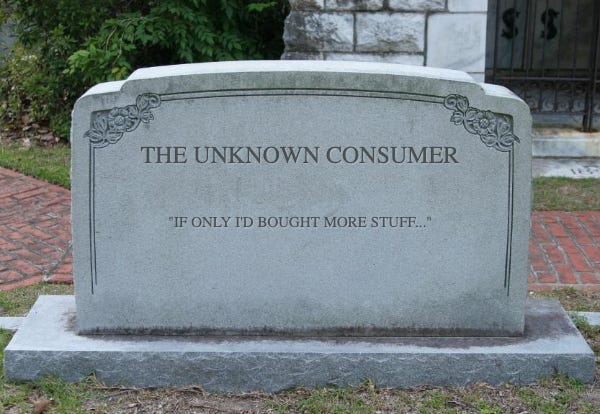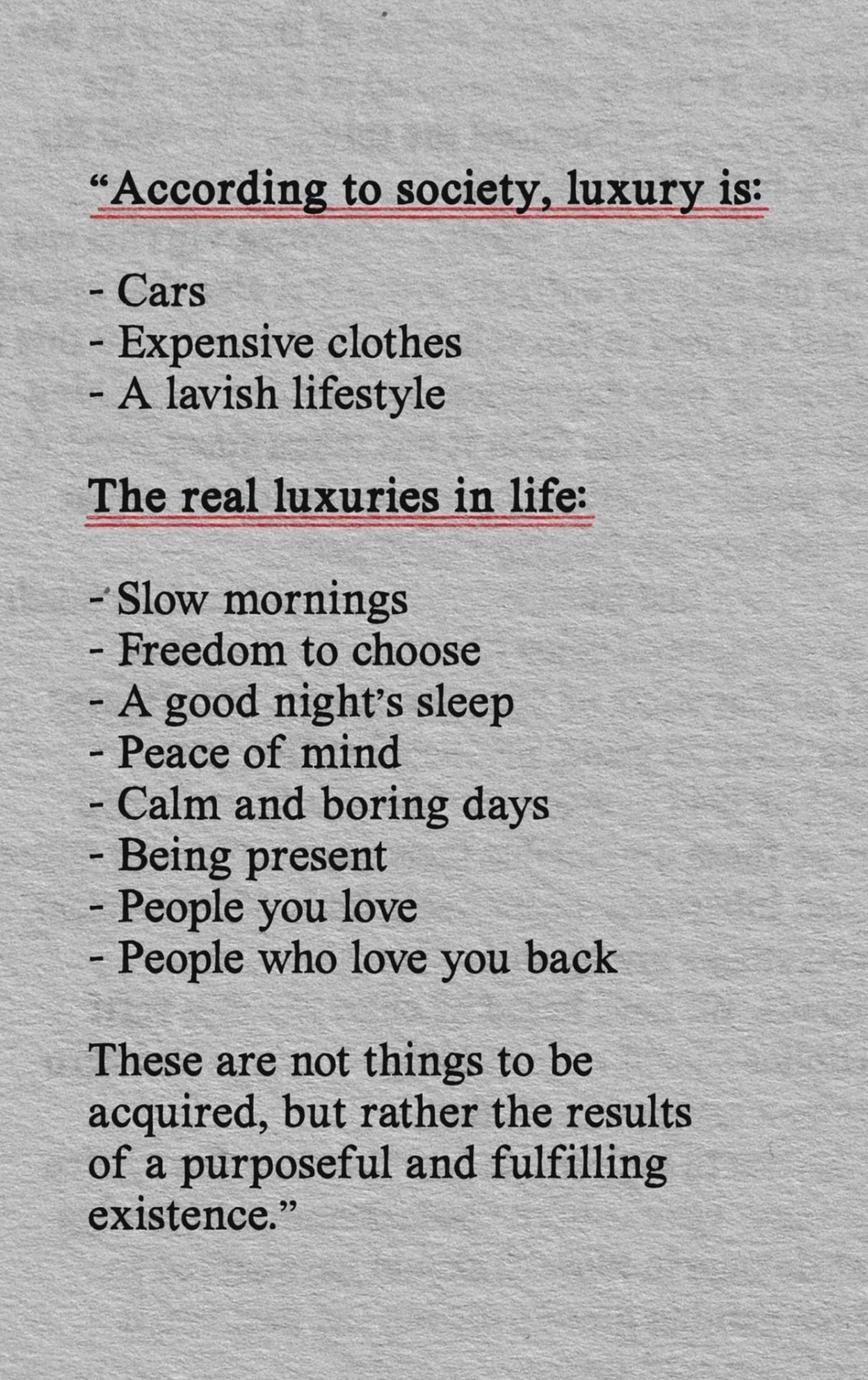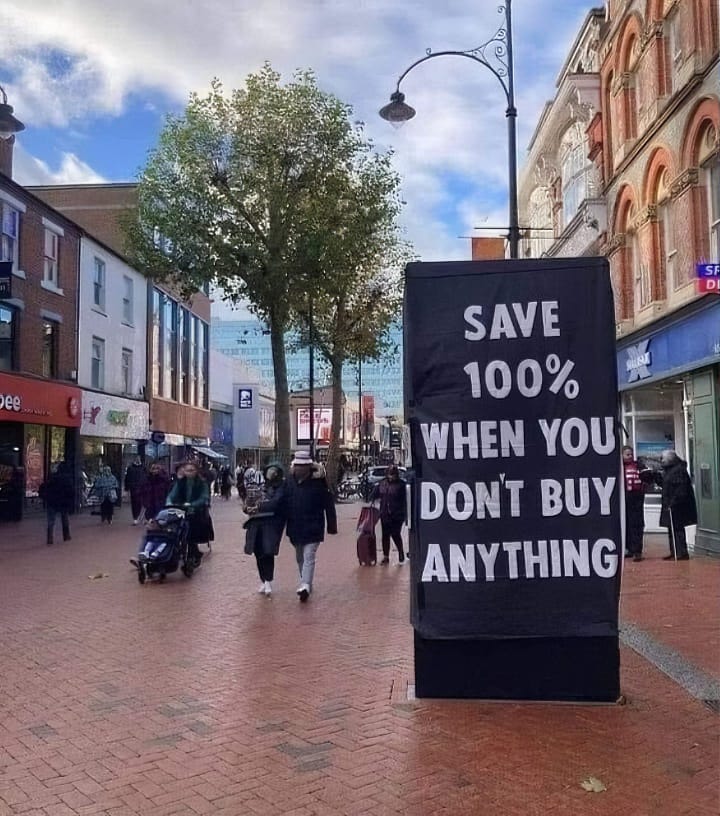Less Is More
I thought I was done writing about this but Sonny Boy and Santa Claus hounded me, surrounded me.1
11.11 and Black Friday sales are barely behind us — Christmas & New Year sales are tempting us now. Yes, we live in a materialistic society, but all the evidence tells us that happiness doesn’t come from what we own.
One thing I’m certain is that when we look back at the missed opportunities in our life, none of them will involve Amazon Prime Day or Black Friday or (pick your favorite sale).As Stoic philosopher Epictetus remarked, wealth consists not in having great possessions, but in having few wants. Not easy, though.
Hero to Zero
In his new memoir, Sonny Boy, Al Pacino writes about making — and wasting — a lot of money early in his career. CNBC reported some of the cringeworthy transactions mentioned in his book, including paying a landscaper $400,000 a year to maintain a home he didn’t live in and unknowingly paying for 16 cars and 23 cellphones. The Godfather star writes that he got his financial act together only in his 70s.
I had $50 million and then I had nothing.
While having as many cellphones as pairs of chromosomes is likely not relatable, this is a timely reminder nevertheless to check for unwanted or unused subscriptions on your credit card bill.Wild Animals
I didn’t know this — very rich people used to ride zebras to flaunt their wealth once upon a time. Makes one wonder who the adjective wild should be attached to.
Zebras are famously hard to train, so they became a somewhat quirky symbol of indulgence for aristocrats around the world.Seems to me, 95% of human behavior is just flexing your status in arbitrary ways. Having a zebra instead of a horse is the old school version of having a Lamborghini instead of a Toyota.2
More Than Larry
Here’s an interesting story from The New New Thing: A Silicon Valley Story, featuring James Clark who co-founded several companies including Netscape and Silicon Graphics. Michael Lewis offers a fascinating insight into what drives people like him.
One evening as we sat in his kitchen I reminded Clark that he had said that once he became a billionaire he’d retire. He said, without missing a beat, I just want to make more money than Larry Ellison. Then I’ll stop.
This was news. I pointed out that he’d never before mentioned this ambition. He responded, I don’t know why. But once I have more money than Larry, I’ll be satisfied. Larry Ellison, the CEO of Oracle, the biggest software company in the Valley, was worth about nine billion dollars3; Clark was worth a bit more than three billion. At the rate Clark’s wealth was growing, he’d pass Ellison within six months. I pointed this out and asked the obvious question: What happens after you have more than Larry? Would you want to have more money than, say, Bill Gates? Oh, no, Clark said, waving my question to the side of the room where the ridiculous ideas gather to commiserate with each other. That’ll never happen. A few minutes later, after the conversation had turned to other matters, he came clean. You know, just for one moment, I would kind of like to have the most. Just for one tiny moment.
Just a few months before, when he was worth a mere $600 million, Clark had said, I just want to have a billion dollars. Then I’ll be satisfied. Back further, before he started Netscape, he’d told Mark Grossman, one of the young engineers who had helped him create Silicon Graphics, something similar. Grossman recalled, ‘Jim came into my office just before he left to start Netscape and said I’d really like to have $100 million.’ Back even further, before he’d started Silicon Graphics, he’d told Tom Davis that what he really wanted was to have ten million dollars. The numbers, they kept moving! And, yet, he was earnest about them.
Why do people perpetually create for themselves the conditions for their own dissatisfaction? More for the sake of more is purposeless wealth accumulation or greed — there is no intent behind it, there is no plan to meet life goals or to give money to philanthropy.First World Problems
We live in an era of peak material comfort. Look back at our ancestors, did any of them have it any better than you? Not mine. From the stories my parents told me, let’s just say my ancestors were not worried about holidays or health insurance. We’re playing this game on easy mode. Easy entitlements and laughable worries mostly.
I think the generations before us understood gratitude better than us modern day folk. As we strengthened our sense of the individual self, and separateness, we have come to believe that we’ve earned or deserve whatever we get.
I’ve a degree of financial freedom because I worked hard and I saved money and I invested and so on, with the operative word, ‘I.’ But the difference between me, sitting at home nowadays publishing a newsletter, and someone else working in the fields or at a factory is an accident of time and geography. I could easily have been born somewhere else or at other some time and lived a very different life.
I didn’t deserve this life. I didn’t earn it. It’s a reminder to be grateful.
If you can't be happy with a coffee, you won't be happy with a yacht.
Naval Ravikant
More than Larry is such a meaningless goal.
Shedding the inherited belief that I don’t have enough, or I’m not enough, or that more is always better, has widened the aperture of my mind. It’s been a game-changer. The sooner we begin cultivating this mindset, the sooner we'll reap its benefits. Contrarian Advice
Past performance increases confidence more than ability.
Be more patient in investing is like the sleep 8 hours of health. It sounds too simple to take seriously but will make a bigger difference than anything else one does.
Every investor makes bets on the future. It’s only called speculation when you disagree with someone else’s bet or time horizon.
We’re all just guessing, but some of us have fancier math.
Life is so good; but is it good enough?This was about 25+ years ago - this book was published in 1999.











"Nothing is enough for the man to whom enough is too little." - Epicurus